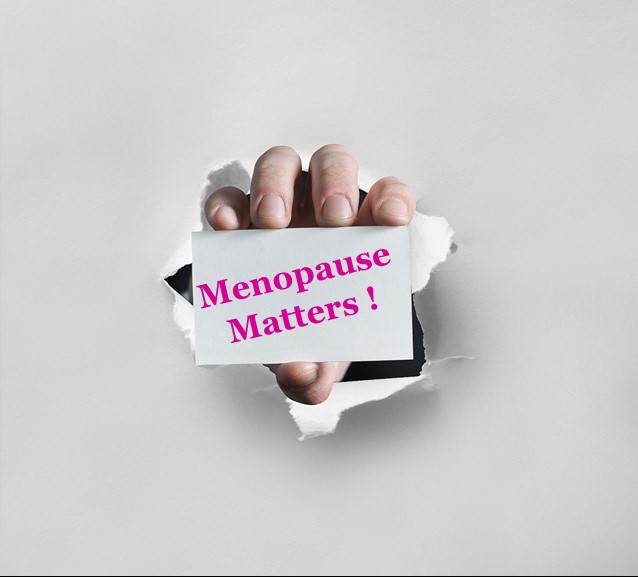It’s time we accept that menopause is not just a female issue, it’s an organizational issue we all need to take seriously and openly in our workplaces!
Recently a MALE HR DIRECTOR requested I provide a Workplace Menopause Awareness Session for “women who feel uninformed and intimidated”. As a knowledgeable and Certified Health Coach specializing in the 50+ generation having been through “the change” myself, I decided to take on the challenge!
Through my exploration, I discovered that menopause is rarely an open topic of discussion in the workplace, despite the fact that nearly half of the world’s population will experience this biological transition and nearly half of all women work! I also learned that approximately 75% will experience some menopause symptoms and 25% will experience serious symptoms. Research by Harvard, Mayo Clinic and the NHS show, however, that most women are reluctant or even afraid to talk to their employer about menopause and the conversation still remains largely taboo. My research also revealed that a great majority of employers do not propose such initiatives. I believe it’s time we take this menopause matter seriously and raise awareness about what it is and how it affects us all.

Here’s why it matters
- Menopause is a natural condition that affects all women
- With current demographics and increased life expectancy, the trend is for women – the fastest growing sector of the workforce – to continue working later in life.
- Un-managed menopause symptoms can have an enormous economic impact, directly affecting attendance, health care costs and work performance.
- Though well-being has globally emerged as a strategic business priority, workplaces, working practices and health policies are generally not designed with menopause in mind.
- Research suggests that workplace ageism and misogyny can play a part in the exclusion of menopause symptoms from corporate health policies, making this a relevant “Diversity and Inclusion” component.
- Menopause occurs at an average age of 51 which correlates with a critical career stage when women are more likely to occupy stressful senior positions. This is especially relevant as we continue to increase the number of women in leadership roles and encourage their valuable contributions to the bottom line.
- Menopause often occurs when women have other major life stressors such as aging relatives and/or children leaving home, all impacting resilience.
- Symptoms such as hot flashes, “brain fog”, anxiety, depression and sleep issues can reduce confidence, add to workplace pressure and cause embarrassment.
- Women have a tendency not to disclose symptoms at work due to concern about career or embarrassment.

What can everyone do?
- Start the conversation!
- Shift our thinking and begin considering menopause as mainstream and as important as any other occupational health issue.
- Accept that menopause is not just a female issue, it’s an organizational and societal matter.
- Provide programs to increase awareness among managers and employees of menopause as a genuine occupational health issue.
- Cultivate a culture where women feel comfortable about discussing symptoms and their impact on their working lives.
- Educate all employees with basic facts from trusted sources to encourage the open conversation and connect it to concerns of stress and burnout.
- Provide options around flexible working hours and work environment – such as office temperature or ventilation – to help manage symptoms.
- Ensure that a dedicated menopause policy is part of your corporate well-being, Diversity and Inclusion or general HR policy.
- If you are a leader going through menopause, try to normalize your challenges, so that other women can feel empowered to speak in the future.
Don’t stay silent – it really matters!
If you stay silent – for whatever reason – recognize that you are reinforcing the taboo and ambiguous attitude that currently exists. Through active leadership support, an organization can begin to realize benefits in productivity, work culture, and the bottom line, when menopausal transition is addressed as a specific, work-related concern. Let’s start the conversation, menopause really does matter!


